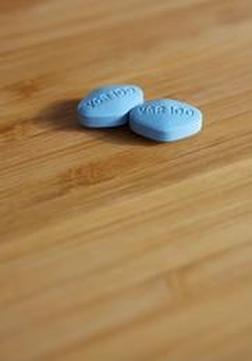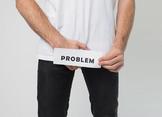How to Take Sildenafil (Viagra): Dosage, Timing & Safety Guide
- Understanding Sildenafil Citrate
- Use of Sildenafil Citrate for Erectile Dysfunction
- Recommended Dosing and Timing
- Taking on an Empty Stomach
- Potential Drug Interactions and Adverse Effects
- Dietary Considerations: Limiting High-Fat Foods
- How Long Does Sildenafil Last? (Onset & Duration)
- Sildenafil Citrate for Pulmonary Hypertension
- Consultation with a Doctor or Pharmacist

Understanding Sildenafil Citrate
Sildenafil citrate is a potent medication commonly utilized for the treatment of erectile dysfunction (ED) and pulmonary hypertension. This drug functions by relaxing muscles and increasing blood flow to particular areas of the body, facilitating more robust and longer-lasting erections in men or reducing blood pressure in the lungs.
Use of Sildenafil Citrate for Erectile Dysfunction
When using sildenafil citrate for erectile dysfunction, standard 50 mg starting dose for ED.[1] This amount dose adjustment range 25–100 mg, depending on your response and tolerance to the medication.
Recommended Dosing and Timing
30–60 minute pre-dose recommendation. However, up to 4-hour dosing window. The effect of the medication can vary from person to person, and the timing could depend on a number of individual factors.
Timing for Optimal Results: 30 to 60 Minutes Before Sexual Activity
The optimal window to take sildenafil is typically between half an hour and one hour before planned sexual activity so that peak blood levels coincide with arousal.
Taking on an Empty Stomach
It's generally recommended to take sildenafil on an empty stomach. high-fat meal delays absorption of sildenafil. Nonetheless, if it causes stomach upset, taking it with a light meal might be an option.
Potential Drug Interactions and Adverse Effects
- Nitrates (e.g., glyceryl trinitrate, isosorbide mononitrate) – contraindicated; may cause profound hypotension.
- Riociguat – contraindicated for the same reason.
- Alpha-blockers or other antihypertensives – risk of additive blood-pressure lowering.
- Potent CYP3A4 inhibitors (e.g., ketoconazole, ritonavir) – increase sildenafil levels; dose reduction may be needed.
- Other PDE-5 inhibitors – avoid concomitant use.
Moreover, potential side effects include headaches, flushing, upset stomach, abnormal vision, and in rare cases, prolonged erections.Always consult your doctor or pharmacist for advice before starting sildenafil citrate.
Who Should NOT Take Sildenafil?
- Patients taking any form of nitrates or nitric-oxide donors.
- People who have had a heart attack, stroke, or life-threatening arrhythmia within the last 6 months.
- Severe hypotension (blood pressure <90/50 mmHg) or uncontrolled hypertension.
- Severe liver impairment or end-stage kidney disease requiring dialysis.
- Known hereditary retinal disorders such as retinitis pigmentosa.
- Allergy to sildenafil or any tablet excipients.
If any of these apply to you, seek medical advice before considering sildenafil.[2]
Dietary Considerations: Limiting High-Fat Foods
To ensure optimal results, it is crucial to limit the consumption of high-fat foods when taking sildenafil citrate. High-fat meals can slow down the absorption of the drug, reducing its effectiveness. Thus, having a low-fat diet could help enhance the drug's effect.
Alcohol and Sildenafil: Is It Safe?
Moderate alcohol (1–2 standard drinks) is unlikely to interfere with sildenafil, but larger amounts can reduce blood pressure, delay erection, and increase the chance of side-effects such as dizziness and flushing. To get the best results, keep alcohol intake low or avoid it on the day you plan to take sildenafil.[3]
How Long Does Sildenafil Last? (Onset & Duration)
Sildenafil usually begins to work within 30–60 minutes and reaches peak blood levels at about 1 hour. In most men the ability to achieve an erection is maintained for up to 4–5 hours, although the terminal half-life is roughly 4 hours. Because of this window, you can take the tablet any time from 30 minutes to 4 hours before sexual activity and still expect effect, provided sexual stimulation occurs.[1]
Sildenafil Citrate for Pulmonary Hypertension
For pulmonary hypertension, sildenafil citrate is also an effective treatment. 20 mg three-times-daily dosing for pulmonary hypertension.[5] However, it's essential to follow your doctor's advice on the exact dosage and timing.
Consultation with a Doctor or Pharmacist
Before taking sildenafil citrate, it is imperative to consult a doctor or pharmacist. They will provide personalized advice based on your health history and current medications, ensuring the safe and effective use of the drug.
In response to a commonly asked question, sildenafil citrate may not necessarily keep you hard after climax. Its primary function is to help you achieve and maintain an erection; it doesn't influence libido or sexual desire. Regarding taking two 100mg sildenafil doses, it's crucial to adhere to the prescribed dose. Taking more than the recommended amount can lead to increased side effects and won't necessarily enhance the medication's efficacy.
What If Sildenafil Doesn’t Work?
If you have tried sildenafil on at least eight separate occasions, taken on an empty stomach and with adequate sexual stimulation, and still see no benefit, talk to your doctor. Dose adjustment, switching to an alternative PDE-5 inhibitor, or evaluation for underlying conditions (e.g., diabetes, low testosterone, cardiovascular disease) may be necessary. Never exceed the maximum recommended 100 mg single dose or one dose per 24 hours.[4]
In conclusion, to make sildenafil more effective, take it as recommended by your healthcare provider, ideally on an empty stomach and about an hour before sexual activity. Limit high-fat food intake and always communicate with your healthcare provider about your experiences and any potential side effects. Remember, safety and efficacy should always come first.



